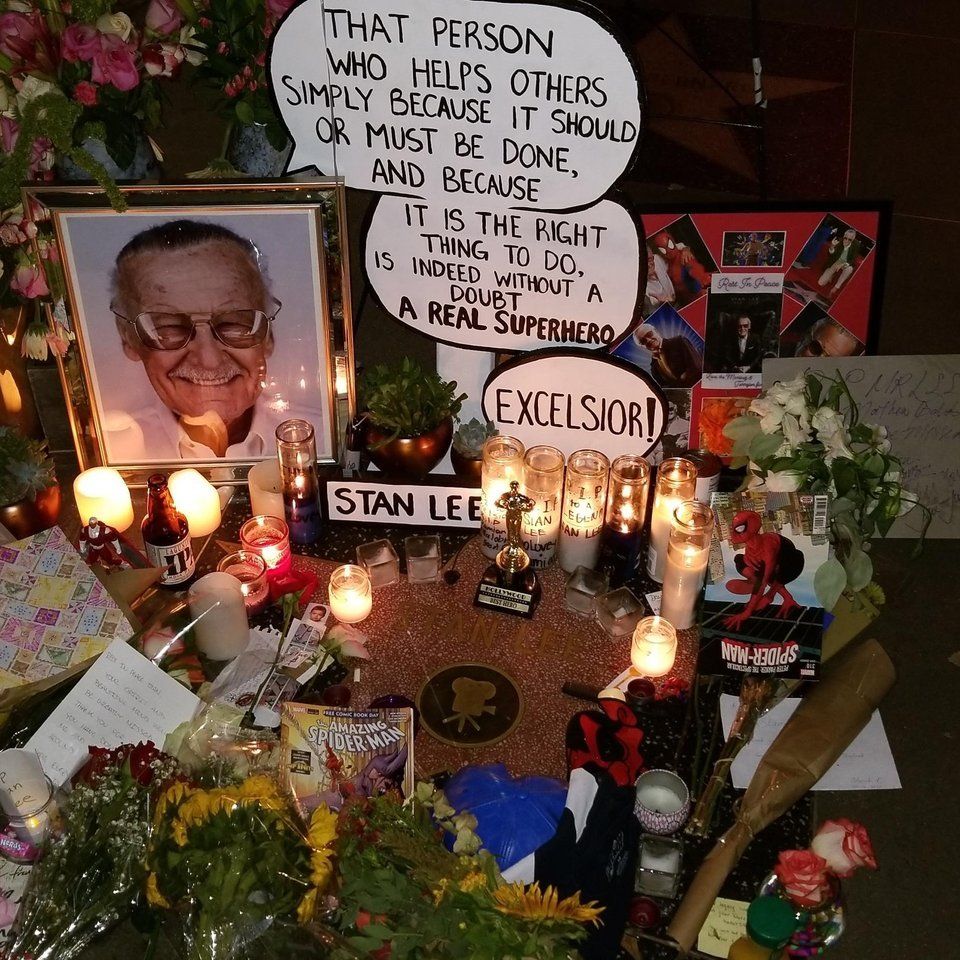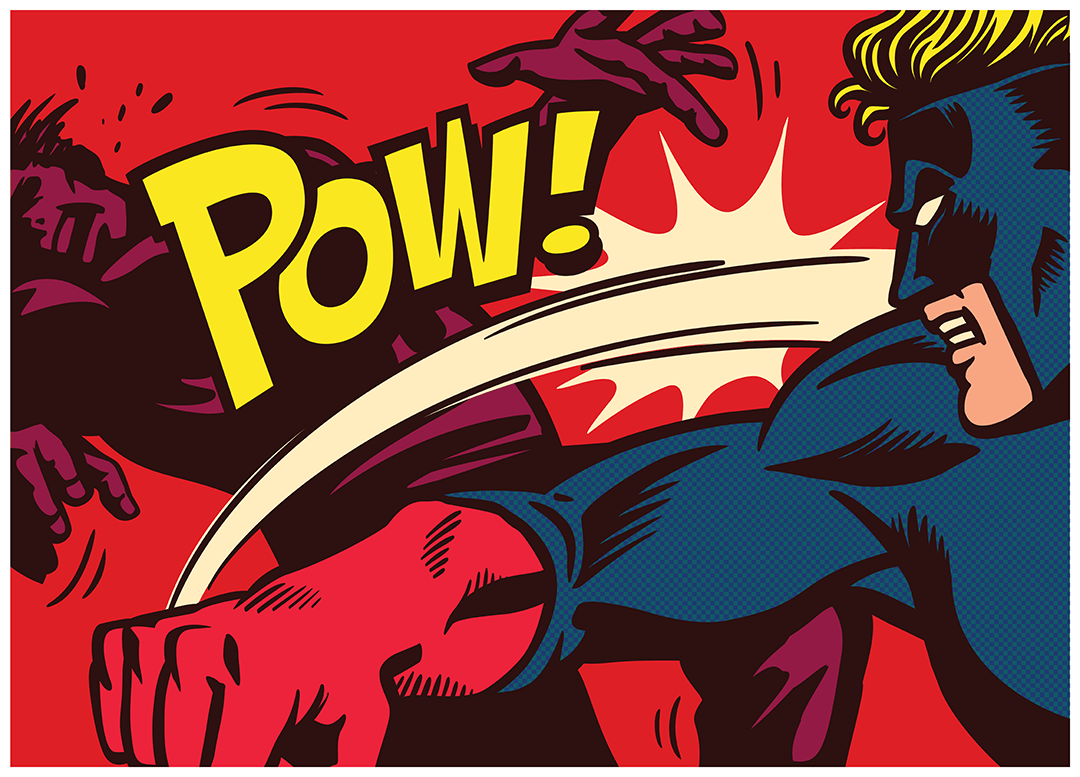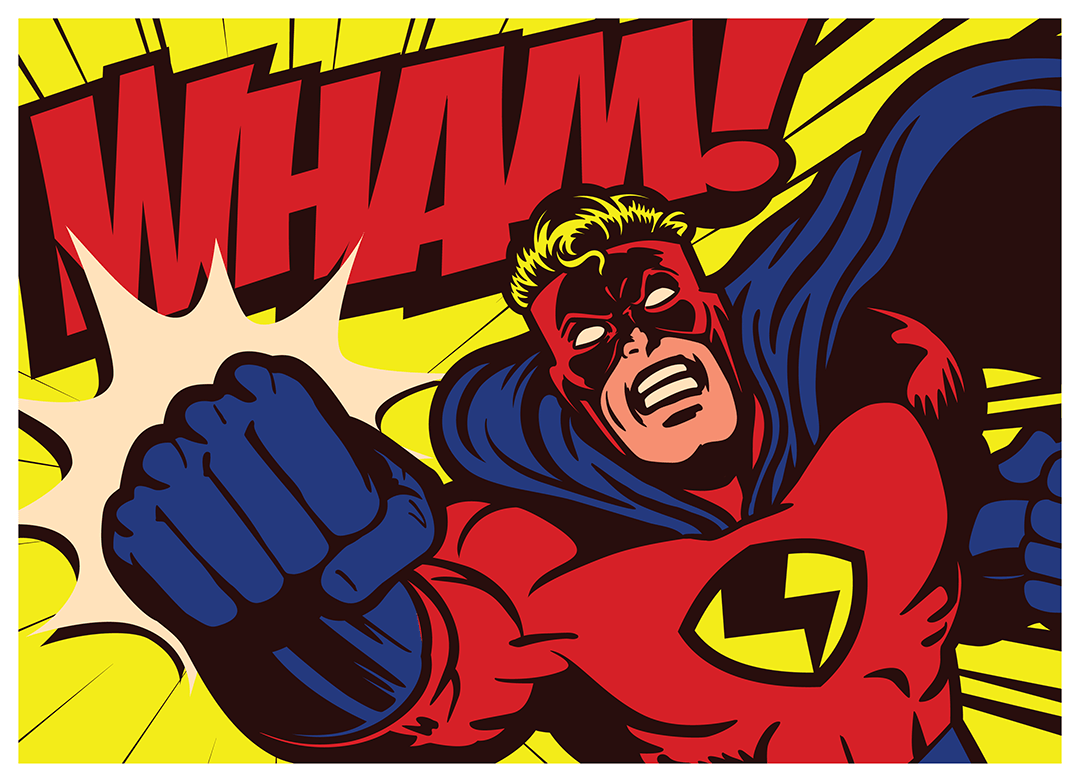The passing of Stan Lee has many thinking about comic books and our culture. Here’s a look at how comic books affect U.S. Copyright Law.
On November 12, 2018, Stan Lee passed away. Lee was a legend in the comic book and entertainment industries — famous for being the writer that helped create and craft the Marvel Universe for Marvel Comics.
Combining his clever and enthusiastic method for turning a phrase with the vibrant and energetic art of Jack Kirby, Steve Ditko, Don Heck, John Romita, Wally Wood, Gene Colan, and so many others, the comic industry changed forever.

His creations include the Fantastic Four, Spider-man, The Avengers, the X-Men, Iron Man, the Hulk, Black Panther, Daredevil, Doctor Strange and Antman. All of these creations went from the pulpy 2-dimensional confines of the funny book pages and leapt onto the screen becoming huge multi-million dollar Movie and TV projects.
With Stan Lee’s passing, his legacy and his creations are at the forefront of everyone’s minds. Lee was the face of an entire imagined world of characters — heroes and villains — that went on to become the bedrock of American pop culture over decades.
Marvel Comics, and DC Comics before it, are world renowned for their superhero comics and all of the other kitsch that sprang from their pages, such as:
- toys
- lunchboxes
- television cartoons
- video games
- and now movies
Each one of those items creates money making opportunities that creators — and holders of IP rights for those creations — dream of.
But Marvel is also infamous in how it dealt with creators’ rights over the decades. The company treated each of those creations as work for hire from freelancers. So of the many millions of dollars that were made off of the creations — be it a Doctor Doom Halloween mask or a Spider-man lunch box — went to Marvel’s parent company, and not the creators that spawned the popular idea in the first place.

So, Copyright for Comic Books – How’s That Work?
Copyright laws were enacted to protect original works of art from unlicensed copy or reproduction. That’s to make sure that if you make your own hero, Super-Duper-Trooper, and start publishing his adventures on your time and your dime, someone down the block can’t see that success you had, and make their own comic book with your character in it — committing the dreaded copyright infringement most creators have nightmares about. This means if you make your comic in paper form, or digitally, Super-Duper-Trooper can have copyright protection with the United States Copyright Office.
The copyright belongs to the creator of artistic works and exists from the moment the work is produced in a fixed, or published, form. That means the day your Super-Duper-Trooper mag hits the “Hey Kids, Comics!” spinner rack, the copyright is yours! Copyright extends to both pictorial and written expressions, meaning that drawings, posters, books, and — since they combine both words and pictures in sequential art — comics!
Depending on the nature and style of the comic book, or your own preference, a comic book can be classified as either a work of visual arts or a literary work. The Copyright Act itself can be found in Title 17 of the United States Code of laws and is maintained by the U.S. Copyright Office.
Here’s a pretty good roundup of the law from the United States own government website, www.copyright.gov.
What’s a Copyright for my Comic Book Actually Protect?
Section 102 of the Copyright Act provides that copyright protection exists in original works fixed in a tangible medium of expression. Copyright does not extend to ideas or concepts but only to the physical form of the captions and stories contained within a comic book. The creator of the work owns the copyright and has an exclusive right to copy, sell or distribute the work. If a comic is created by more than one person, they jointly own the copyright, unless they agree otherwise. This means all kinds of creative works — including cartoons, comic strips, comic books, graphic novels, webcomics, and YouTube videos — are all protected from copyright infringement by the copyright law of the United States.

And How Long Does That Copyright Last?
This is the first part for where things get tricky. Copyrights were designed to protect creators. So technically the copyright protection for a comic book character lasts for the duration of the creator’s life plus an additional 70 years. After that time, the comic character becomes part of the public domain and may be copied or reproduced without breaching copyright law.
We see this has happened with a lot of characters from our literary past, like Thor the Norse god, or King Arthur. But because comic book creations were “work for hire” many of their copyrights were held by the company. And those companies have lobbied frequently over the decades to extend the life of a copyright since the company isn’t dead and is still making money off of the creations. Superman, not a Stan Lee creation, is one of the most famous examples.
Jerry Siegel and Joe Shuster originated the Super Hero Comic Book genre when they created Superman. They’ve been dead for years now. And their creations would have passed into the public domain by now. But Time Warner, owner of DC Comics, has been at the front of the pack pushing changes in the law to extend the life of copyrights.
Keep in mind, it’s companies that are extending these protections for characters they purchased from the creators. So the protection has really only helped characters at the top of the mountain — the Supermans, the Superchums, and the Batmans — while leaving a host of other, long forgotten creations in limbo, unable to be used in the public domain but also not being used by their now-dead creators to make any new content with.
What is Work for Hire?
Work for Hire is the sticking point in a lot of famous comic book copyright court cases over the years. Although copyright laws were drafted to protect the creator of a work, they do not apply to employees or individuals who have been commissioned to work for someone else. According to Section 201 of the Copyright Act, creators who do work for hire do not have the same protections. That means if you create a comic while working for a publisher, like Stan Lee did when he worked for Marvel Comics and spawned an imaginary universe of heroes that still to this day captivate the world, the copyright belongs to the employer. There is one caveat, and this caveat is where much of the battle has been waged over work for hire issues with comic book copyrights. If a work for hire creator’s employment contract states different, then they can retain the copyright — or part of the copyright.

Since the 1960s, Things Have Certainly Improved for Creators
That caveat about a creator’s contract opened up a ton of industry fighting in the 1970s and 1980s. It began in earnest with the Superman movie. When the blockbuster film came out and box office returns were leaping tall buildings in a single bound, it became national news that the creators of Superman were poor, with no stable healthcare in their old age.
The company was overtly shamed in the public eye and worked out a deal with the creators. Which opened things up for two things:
creators rights to be re-evaluated by companies that bought work for hire creations from the talented comic book or comic strip creators to get rights to their creations up front moving forward.
This affected Marvel comics. Jack Kirby, the artist that worked with Stan Lee on many of the most popular Marvel characters, began a long and involved struggle with the company to get those rights re-evaluated.
Stan Lee was involved in the struggle on the side of the company. Because unlike the artists he worked with, Stan was always a company man. While he was writing many of the books, he was also the editor-in-chief. He then became a top executive. Stan retained much of the benefits and profits for the creations he was a part of because he was part of the company. So as the company made a profit, so did Stan.

Comics and Creators Rights Get a New Image
This struggle over creators’ rights and work for hire became a white-hot issue in 1992 — when Image Comics was founded. Image Comics was a company created by the top work for hire comic book artists in the industry at the time — Jim Lee, Rob Liefeld, Todd McFarlane, Erik Larsen, Jim Valentino, Marc Silvestri, and many more. These artists were industry titans, working at Marvel and generating seven-figure sales for some of their comics.
The founders of Image felt that the work for hire situation was bad for them and bad for the industry. So they all quit Marvel, and formed their own company.
This sent shockwaves through the comic book industry. Everything changed.
And the major difference between Image and Marvel comics is that artists who published at Image were not work for hire. They retained the rights to their creations. It became more of a collective than a company. Each Image comics partner founded their own studio, and they all published under the Image banner.
This move became immediately successful, and radically shifted the way comics creators and copyrights worked in the industry.
Image Comics is still one of the largest and most successful comic book publishing imprints in the world. And the “big two” companies — Marvel Comics and DC Comics — altered their work for hire contracts.
Remember that caveat? Well now work for hire contracts with Marvel Comics allow for creators to retain a portion of their rights. So when a new Marvel character hits it big, and lunch boxes and t-shirts and video games and Netflix series are made from that character, the creator AND the company have intellectual property rights, with both sharing in the profits.
Have Questions? Contact Alex Sluzas at Paul & Paul
Are you a comic book creator with questions about your rights? Do you have a character or a project that needs copyright protections? I’m Alex Sluzas and I’m ready to help you protect your creations. Just call my office at 866-975-7231. Excelsior!
